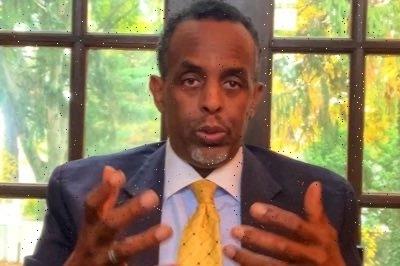A FORMER gambling addict who spent $1million trying to win the lottery has told how he became homeless and lost his business battling his demons.
Adam Osmond's problems began when he started playing the lottery sporadically after he bought two gas stations and had quick access to scratch off cards.
Born in Somalia, Osmond from Connecticut moved to the US more than 35 years ago and attended college before building up his gas station businesses.
It started just spending “a dollar here or there,” he told MarketWatch.
He hit it big on various occasions, snapping up a $50,000 prize 15 years ago on a drawing game but “I put the whole thing back” into more tickets, he recalls, eventually losing the whole $50,000 again.
“When you talk about hitting bottom, I hit the worst of bottom,” says Osmond, who sought treatment for his addiction.
Osmond’s story may be an extreme one, but it’s not entirely unique. Experts say that as state lotteries have surged in popularity — combined sales have grown from around $59 billion in 2010 to nearly $90 billion in 2020 — so have the number of Americans who are addicted to playing the games.
As Americans are enticed to buy tickets with the possibility, however remote, of winning a life-changing sum, there’s always the risk that some will become hooked on the lottery, say experts. And those who are already addicted may find themselves further incentivized to play.
The problem is only compounded when there’s a big jackpot, experts add. Such events inevitably result in lots of news coverage and feed the idea that playing the lottery is a fun, safe pastime.
Read our lottery live blog for the very latest news and updates…
Most read in The Sun
AGE OLD TALE I have men falling at my feet asking for dates – until they realise my age
NHS rule change could see MILLIONS charged for prescriptions they now get for free
WFH & facemasks will stay for at least 3 more weeks, Boris confirms
Hols boost as pre-departure tests scrapped & day 2 PCR swapped for lateral flow
And that’s in spite of the fact the odds of earning the top prize are one in 292.2 million – meaning you have a greater chance of becoming a movie star or being killed by a bee sting.
Overall, around 2 million U.S. adults have a severe addiction to gambling, while another 4 to 6 million have a mild or moderate problem, according to the National Council on Problem Gambling .
The jackpot mania can also cause those in recovery from a gambling addiction to relapse, says Keith Whyte, executive director of the national council. Either way, he says, lottery fever is a destructive force.
“It normalizes gambling,” he says.
Perhaps the most troubling aspect of lotteries, Osmond says, is their popularity among the poor — meaning the people who can least afford to gamble.
It’s a point that has been cited in much research, with one study noting that those who earn less than $10,000 annually spend $597 (or about 6% of their income) on the lottery.
Ultimately, Osmond and others fear the problem won’t go away easily, particularly because states are introducing more ways to play the lottery.
Today, he works as an accountant for Connecticut’s housing department and runs marathons and other races in his free time.
And he credits running as being what saved him from gambling — it served as a way for him to channel his energy positively, he says.
Now, he has competed in more than 500 races, including several marathons. He recently ran the New York City Marathon for the first time.
Source: Read Full Article










